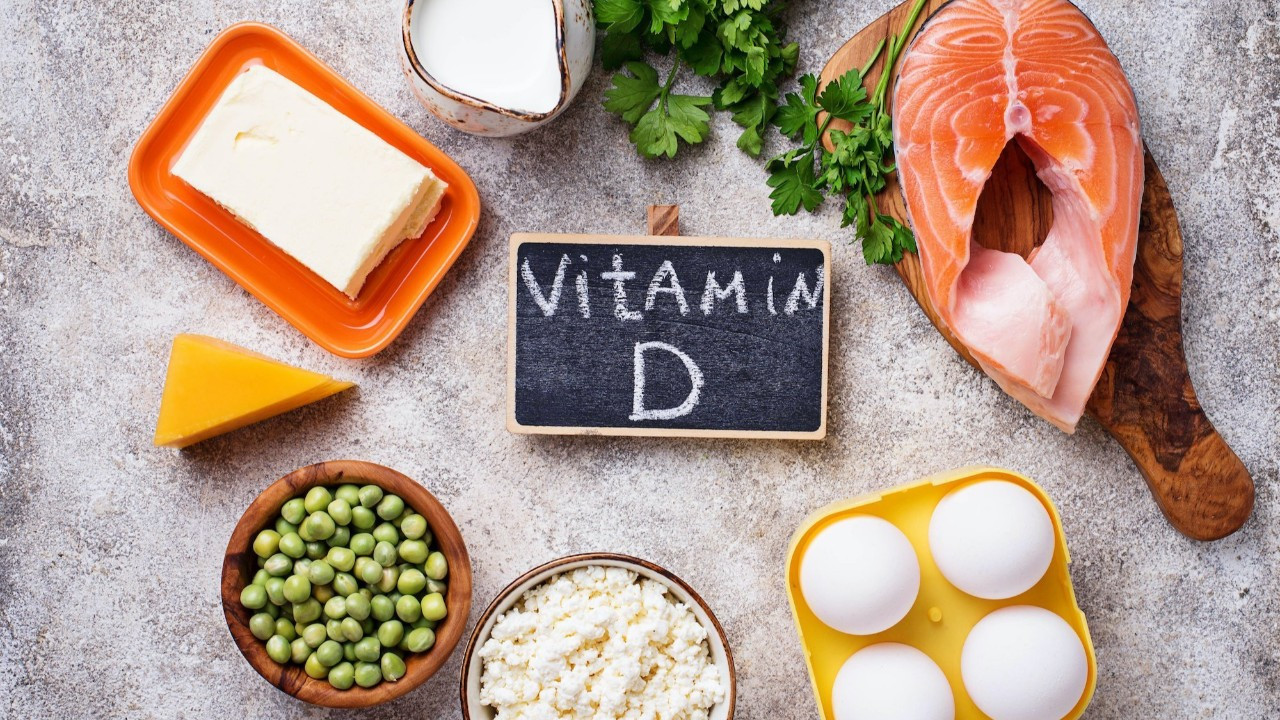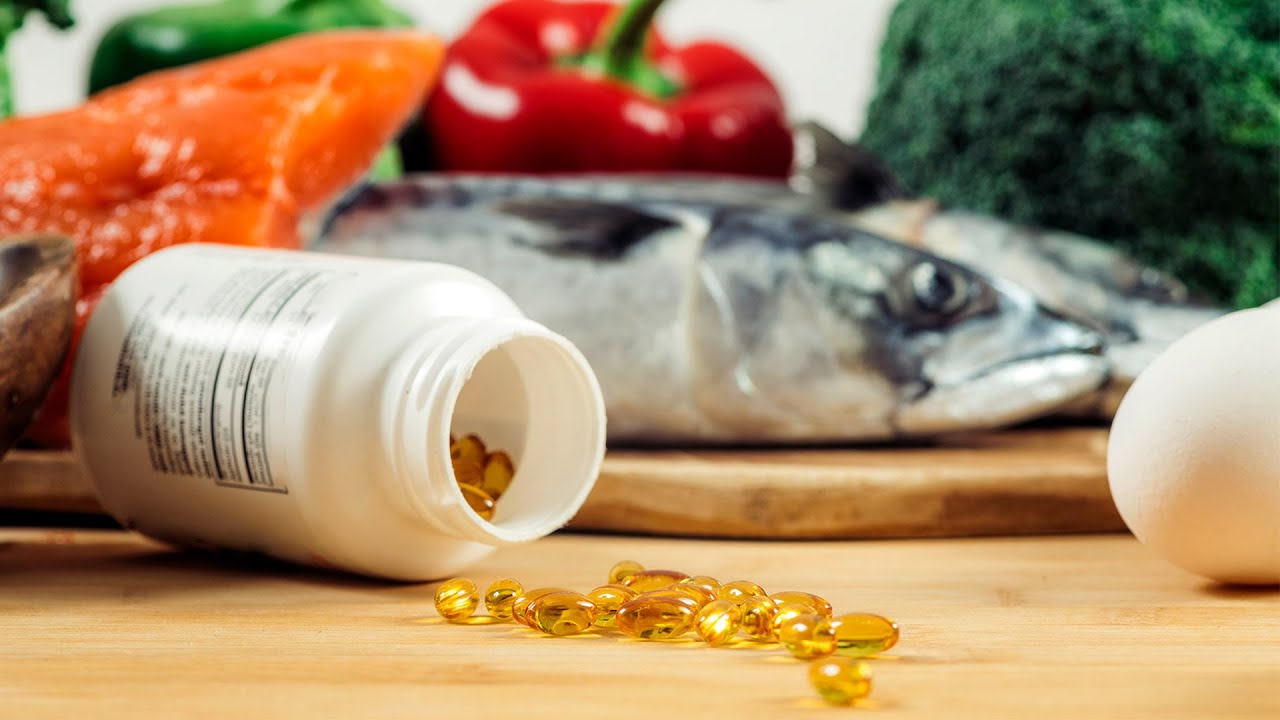One of the vitamins that we need to take regularly for a healthy life is vitamin D. There are some foods that contain this vitamin, which we get most from sunlight. Let’s examine in all details the questions such as what is vitamin D, what is it good for, what happens in its deficiency and in which foods it is found.
There are many minerals, amino acids and vitamins that we need to have for a healthy life. We can get some of these from almost any food, but for some we have to work a little. For example, many of us are deficient in vitamin D, even if we are not aware of it. Because We get vitamin D most intensely from sunlight. and especially when we come to the winter months, we begin to feel its lack.
Oh dear, you can say that you are deficient in vitamin D, you know. Imagine how long you can endure living with joint pain, fatigue, weakness, and a weak immune system. Of course, where can we find sun in the middle of winter and get vitamin D? Don’t worry, some foods will work for you in this regard. What is vitamin D, what does it do, what happens when there is a deficiency, what foods are found in it, let’s examine it in all details.
Let’s start with a basic definition; What is vitamin D?
Vitamin D is a type of hormone-based fat-soluble vitamin that is also produced by our body and that you can take from outside. Vitamin D, which is vital for our body, When we are exposed to sunlight, we produce chemicals on our skin by converting them to calciferol. In other words, we meet our vitamin D needs by staying under a certain amount of sunlight every day.
So what does vitamin D do?
You know, since our childhood, they have been forced to drink milk to strengthen our bones, but they have been trying to get calcium into our bodies; that’s the absorption of calcium in the body, The main component that ensures its retention and use is vitamin D. It fulfills the same task for phosphorus.
Some studies have shown that vitamin D inhibits the growth of cancerous cells. Vitamin D, which also reduces inflammation; for our organs, tissues and especially our bones It has a protective and strengthening effect.
Benefits of vitamin D for our body:
- It strengthens the bones.
- It regulates blood sugar.
- It lowers blood pressure.
- It has a healing effect on cancer.
- It protects heart health.
- It is good for your psyche.
Strengthens bones:
Vitamin D ensures the absorption, retention and use of calcium and phosphorus in the body. Both of these components are extremely important for our bone health. They also affect nails, teeth, hair and beards, making them strong.
Regulates blood sugar:
Vitamin D stimulates the pancreas and thus affects the insulin production process. Proper production of insulin regulates blood sugar. It is known that vitamin D is of vital importance, especially in diabetic patients.
Lowers blood pressure:
There is an enzyme called renin secreted by the kidney. This enzyme has a negative effect on blood vessels. Vitamin D reduces renin secretion. Studies have shown that patients with elevated vitamin D levels have decreased complaints of high blood pressure.
It has a curative effect on cancer:
Vitamin D is known to inhibit the growth of cancerous cells, but it also has a preventive effect. especially colon and breast cancer It has been observed that the vitamin D value is low in people treated for different types of cancer.
Protects heart health:
The positive effect of vitamin D on blood vessels directly affects the heart positively. And also it’s a kind of cardiac tranquilizer and it has also been shown to increase people’s cardiovascular endurance.
It is good for your psyche:
The fact that vitamin D is good for our psychology is actually a biological reflection of seasonal trauma. When winter comes, our vitamin D drops and we become unhappy. but when our vitamin D is high, we feel as if winter has never come and we reduce the effects of depression.
How much vitamin D should be taken per day, what is the ideal vitamin D value?
Even if it varies according to the age, weight and health status of the person, babies up to 12 months 400 UI, Children from 1 to 70 years old and adults 600 UI, The elderly over the age of 70 need a daily vitamin D level of 800 UI.
In the results of the blood test, if your vitamin D value is below 12 ng / mL, severe deficiency, if it is between 12 – 20 ng / mL, mild deficiency, If it is between 20 – 50 ng/mL, it is normal, 50 ng/mL and above is considered high. Of course, it should not be forgotten that these values vary from person to person.
So how do you get vitamin D?
Let’s explain the easiest method. Go out in the afternoon, when the sun has lost its heat but is still overhead. Turn your face, the palm of your hand, your legs, the inside of your arm to the sun and sunbathe for 15 minutes. If you do this every day, you will more than meet your vitamin D needs.
Of course, let’s make our warning, do not throw yourself under the sun according to your mind. Stay in the shade at noon when the sun is at its hottest, If you have sensitive skin, make sure to use sunscreen, you may need to protect other parts of your body while sunbathing certain parts of your body. So it’s good to be a little careful.

If you ask where to find the sun, here are the foods containing vitamin D:
- Salmon
- sardine fish
- Herring
- swordfish
- Tuna
- mackerel fish
- beef liver
- Egg yolk
- Prawn
- Chicken
- Red meat
- Sun-dried foods
- Butter
- cereals
Some of the foods containing vitamin D are like this, but to be frank The amount of vitamin D in them is like a drop in the ocean besides your daily needs. Sun-dried natural foods should be classified separately because foods such as mushrooms produce vitamin D, just like us, while drying in the sun. In ancient times, people met their vitamin D needs in this way during the winter months.

What are the common symptoms of vitamin D deficiency in recent years?
- Depression
- bone pain
- Joint pain
- Weakness
- Tiredness
- get sick often
- Sweating
- hair loss
- Nail breakage
- Sensation of thirst
- Dizziness
- persistent headache
Some of the symptoms seen in vitamin D deficiency in general are as follows. Of course, these symptoms are not seen in every person with vitamin D deficiency. however, depending on the deficiency, the intensity of the negative effect may increase as the organs and limbs in question weaken.
You may be at risk; People who are prone to vitamin D deficiency:
- fair-skinned people
- People with malnutrition
- seniors
- People who have had recent stomach surgery
- diabetes patients
- pregnant women
- breastfeeding mothers
- People working indoors
- epilepsy patients
- People who dress too close
- People using cortisone
- Those who use very high factor sunscreen
- Celiac patients
- kidney patients
- obese and obese people
- Liver patients
Of course, everyone needs vitamin D and health problems can increase if they don’t get as much as they should. For those on this list, vitamin D is literally vital. For this reason, you should get tested frequently and take supplements if necessary.

When should I take a vitamin D supplement?
It is possible to find countless vitamin supplements in pharmacies, markets and even shopping sites. Most of them really do what they promise, but some of them can be totally scam. For this reason, it is not recommended to take any vitamin D and similar supplements without your doctor’s recommendation or asking your doctor.
It is vital in many aspects, from strengthening our bones to regulating our blood pressure. We talked about what you need to know about vitamin D. What we describe is for informational purposes only. As with all health issues, remember that you should get the most accurate and specific information about vitamin D from a specialist doctor.
